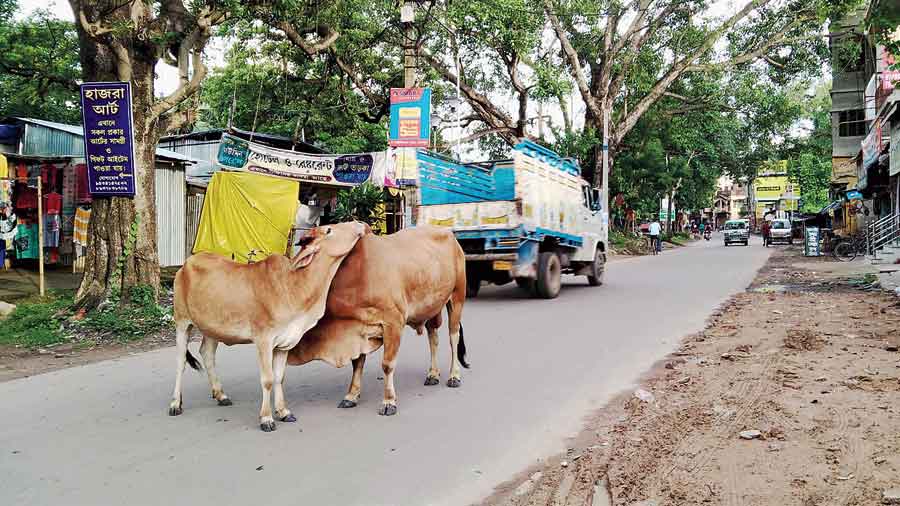The Animal Welfare Board of India on Friday withdrew its earlier “appeal” to “all cow lovers” to hug a cow on Valentine’s Day that had evoked reactions of ridicule and sarcasm on social media and words of caution from animal behaviour experts.
“As directed by the competent authority and ministry of fisheries, animal husbandry and dairying, the appeal issued by the Board for celebration of cow hug day on February 14 stands withdrawn,” the Board said in a note on its website.
The Board had posted its earlier appeal on February 8 urging all cow lovers in the country to celebrate February 14 as cow hug day, “keeping in mind the importance of mother cow”, and saying it would yield “happiness” and “positive energy.”
A Board’s official who had told The Telegraph on February 8 that the appeal had been issued “under a direction from the ministry” was not available on Friday to explain the decision to withdraw the appeal.
The appeal as well as its withdrawal triggered mirth on social media platforms.
A February 8 post on Twitter had said: “Even government is admitting that there is no other way Bhakts are going to get any hugs in February, so better go hug a cow.”
Another post said: “Unclear whether bovine consent is required, but you’ll find out no doubt.” And WhatsApp users since February 8 shared another post on Twitter titled “It’s not that easy” featuring an old video clip in which a cow is seen kicking BJP leader G.V.L. Narasimha Rao in Andhra Pradesh as he tried to approach the animal.
After the Board’s withdrawal note, one Twitter user posted: “Bad news for couples. Thought they’ll escape as BJP guys will be occupied with cows. Too bad. Will get thrashed this year too.”
Sections of social scientists had interpreted the Board’s February 8 appeal as in line with efforts to portray Valentine’s Day as a “western import,” and a plan to symbolically appropriate February 14 through the cow.
Animal behaviour experts had cautioned after the Board issued the cow hug appeal that cows might find novelty fearful and become aggressive.
A textbook on cattle behaviour has underlined that cattle are generally afraid of sudden changes in routine and could interpret sudden movements, sudden noises or prolonged eye contact as threats.











